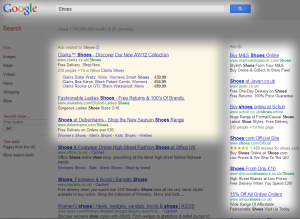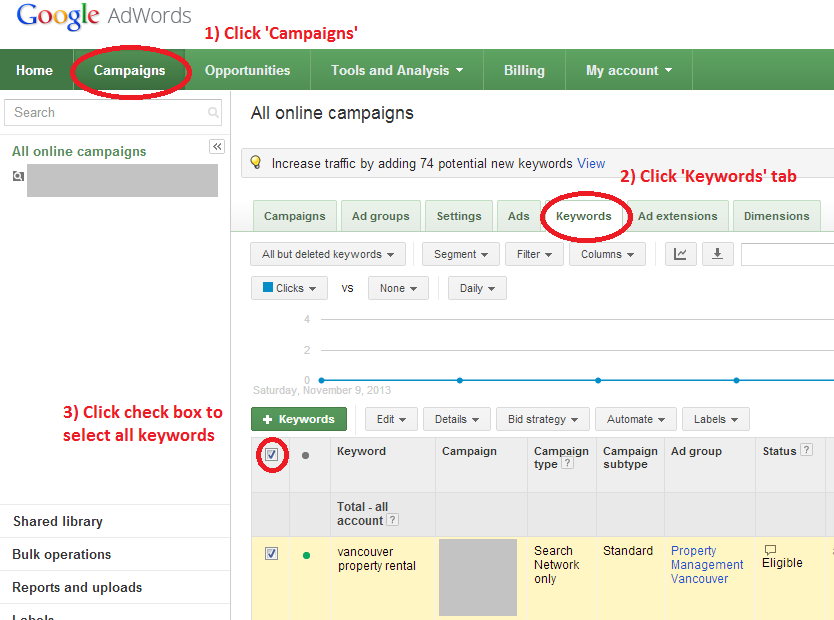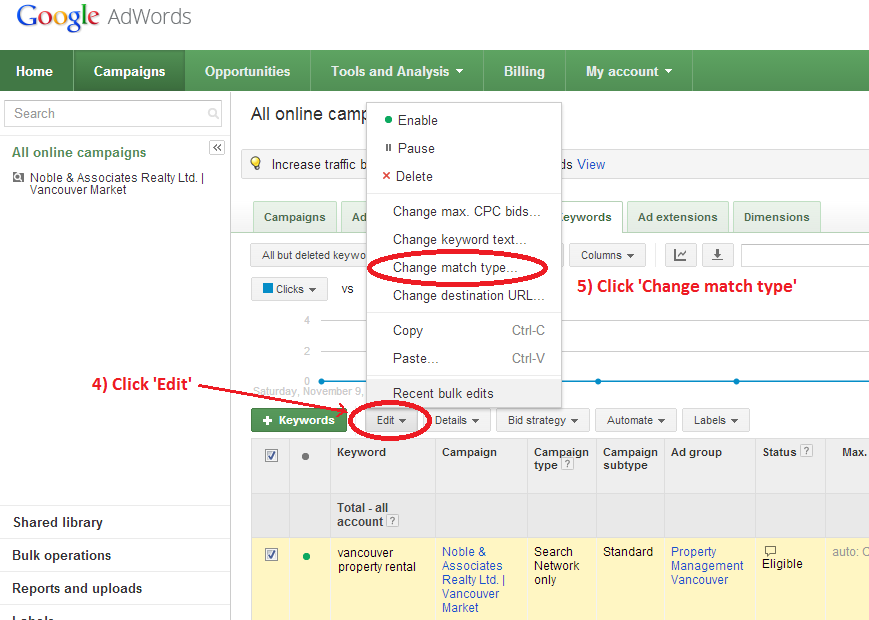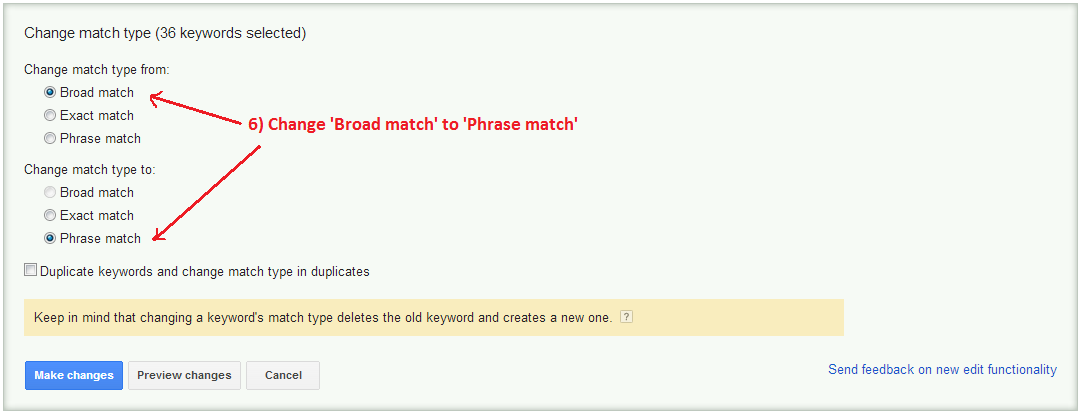What Is Google AdWords?

Google AdWords is Google’s advertising system in which advertisers bid on certain keywords in order for their clickable ads to appear in Google’s search results. For example, if you search ‘Shoes’ in Google, various ads will show up on the top and the side of the page, like the ad for Clarks Shoes (see image below).

Brands should be aware of the power of AdWords. When set up and managed properly, AdWords is one of the best sources for new customers. Launching a new AdWords search campaign can be an exciting process! But it can also be confusing, or even frustrating, for first users (as I had experienced myself while setting up my first AdWords campaign). So here I am to discuss how to best create and manage a profitable Google AdWords campaign! Here are the key components to a successful and rewarding AdWords campaign:
- Choosing The Right Keywords
- Don’t Waste Your Dough! – Calculating Max CPC (cost per click)
- Competitor Intelligence
- Powerful USP (unique selling proposition)
- Irresistible Offer
- Compelling Ads
- Congruent Landing Pages
- Conversion Tracking
- AdWords Settings For Success
- Optimization
Choosing Suitable Keywords (Customer Demand)
Today we will be talking about Customer Demand, basically, key tips and tricks to choosing suitable keywords for your business. Below are some essential factors you should consider when setting up your Google AdWords campaign:
- Verify that there is search volume for what you’re going to offer – Adwords search advertising is useful when your customers are searching for your product or service in Google. But before you get too excited about creating your first campaign, you need to first verify there is in fact search volume for what you’re going to offer. If there is no search volume, then that tells you no one is typing that phrase into Google. There is no point in advertising on keywords no one is searching so choose keywords carefully based on search volume.
- Use the Google AdWords Keyword Suggestion Tool (https://adwords.google.com/select/KeywordToolExternal) – The keyword tool acts much like a thesaurus. You enter in phrases you think your prospects are searching, and Google tells you other similar, relevant phrases. Google will also tell you how often people search these phrases, how competitive the keywords are in AdWords, and how much it’ll cost to advertise on each keyword. All of this information will help you determine which keywords you want to use in your first campaign.
- Make sure the Advanced Options are set – If you’re in Canada, then set the Location to Canada and set the Language to English. The Device should default to desktops and laptops, which is what you want unless you’re targeting only mobile devices.
- Click on the Columns drop down menu – Make sure to check Competition, Local Monthly Searches, and Approximate CPC (cost per click).
- Use keyword Match Type setting called “Phrase” match – When looking for keyword ideas, it gives you an accurate sense of how many relevant phrases there are per month. Also use Phrase match in your own keyword settings for more relevant ads and much more control over your ads than Broad match (default setting). Phrase match keywords will trigger ads when the EXACT phrase is part of the keyword typed into Google, unlike Broad match, which will show your ad to ANY search phrase Google thinks is relevant to your keyword. To change your keyword to Phrase match, simply add quotes around the keyword, or you could also change it easily by going to the ‘Campaigns’ tab → ‘Keywords’ tab → Click check box to select all keywords → Click ‘Edit’ → Click ‘Change match type’ → Change from ‘Broad match’ to ‘Phrase match’ (see screenshots below).

Click To Enlarge 
Click To Enlarge 
Click To Enlarge
- Is the person searching this keyword likely to buy my product or service? – Or is the person more likely just doing research with no intention of making a purchase? In other words, what is the intent of the keyword? When starting out, you’ll want to advertise on what I call “buying intent” keywords where the person is clearly looking to buy. Also, choose specific keywords targeted to your specific target market to avoid wasting your budget on people unlikely to buy. For example, if you were a property management company only for the Vancouver BC area, you may want to use a keyword such as “property management vancouver bc” instead of simply “property management”. A more generic keyword also tends to be more competitive, hence have a higher CPC (cost per click).
- Can I afford to advertise on the keyword? – This leads us to my next blog post on this topic, “Don’t Waste Your Dough!”
which will be about calculating Max CPC (cost per click) for each keyword.
Stay tuned! 🙂
Relevant Links:
Profitable Google AdWords Campaign
Understanding Google’s Quality Score
What The Heck Is AdWords Quality Score And Why Does It Matter Anyway?
Revisiting the Economics of Google Quality Score: Why QS Is Up to 200% More Valuable in 2013